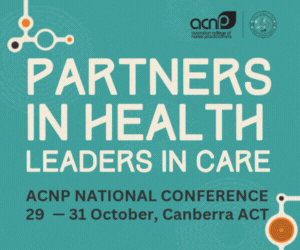Finishing the first year of my Bachelor of Nursing is exciting and reinforces that nursing has been the right decision to change careers.
Like many students, I expected nursing to be all about patients and being by the bedside. This first year has laid a theoretical foundation and provided a glimpse into issues that will impact my nursing career.
A predominant issue we have been introduced to is the impacts of climate change on public health and the healthcare system, particularly in regional and remote areas. During tutorial discussions, students accepted but expressed concern about how climate change would greatly impact our careers- although to what extent cannot be foreseen as curriculum content on this topic is scarce.
I have seen that like first responders, nurses work tirelessly to treat people affected by bushfires and floods both for acute injuries and resulting in long-term health problems.
Often, this care is provided where healthcare infrastructure is compromised by damaged facilities, limited access to supplies, equipment, and medications.1
Will my peers and I be able to practice in such working environments if we do not receive appropriate training?
My previous career was in the Royal Australian Air Force (RAAF), in roles focussed on warfighting. Here, I received training and trained others to respond to emergencies and aid the community.
Importantly, training included theory and practical experience in planning, coordination, and implementation to cover a variety of incidents, from simple security through to mass casualties/fatalities.
By training in theory and practice, RAAF personnel can apply the knowledge, skills, and attitudes to a range of situations not specifically covered in training at short notice.
In my case, I implemented these skills to respond to emergency situations and will be able to transfer them to my nursing career to respond to unexpected challenges. This is not an option for my fellow nursing students, many coming to their studies straight from high school.
Our lecturers are aware climate change is causing havoc, and I hope they can implement the education needed into years two and three of the degree to go beyond bedside nursing.
The complexities of responding to climate-driven health concerns and emergencies will require an understanding of extant policies and disaster management plans. The curriculum does not address this content, and a concerning thought discussed among students during tutorials is whether such plans exist and, if so, to what detail? New approaches will be required to remain adaptive and resilient over time, and the next generations of nurses will have a key role in that process.
Current students are future nursing leaders.
As a future leader, I seek to be equipped to manage health impacts caused by climate change grounded by a combination of theory and practical training underpinned by knowledge, skills, and attitudes to make us safe clinicians.
Having experience in educating others (design, development, and implementation of courseware), I appreciate the complexities of adding additional content to the degree and the finite time and resources that can be applied. However, remaining current with contemporary issues in nursing requires students to be equipped to manage future challenges.
The Standards for Practice refers to the continual analysis, thinking and development to maintain our capability to practice.2
This is not only an individual registered nurse’s responsibility but also that of the profession, which includes student nurses and nursing educators. Recently student nurses were not prepared for COVID-19 and educators rose to the occasion to guide students transitioning to practice. We expect the same to manage nursing practices impacted by climate change emergency.
Exposure to curriculum content specifically addressing the issues associated with climate emergency has only been enough to be ‘eye opening’ as to the complex interrelationship of climate change events and the multi-level effects on health. In reading for assignments like an essay on ‘Indigenous Health and Climate Change’, it appears there are numerous academics, professionals and even students looking at and asking questions of how prepared and resilient the nursing profession is for addressing climate change impacts on the healthcare sector and individual’s health. To me, this suggests there is a level of concern that, as a profession, we may not be as prepared as we should be and perhaps do not fully appreciate the complexities of dealing with climate change. This must change.
Even with confidence in the training and skills from my previous career, along with knowledge and clinical skills through the degree, I question whether I will be adequately prepared with information and training on the impacts of climate change on health and responding to events like natural disasters to step-up when the time comes for me to face this looming threat as a professional nurse. I cannot begin to imagine what it feels like for a nursing student straight out of high school.
References
1 Attorney-General’s Department. (2020). Royal Commission into national natural disaster arrangements report October 2020. Chapter 15. https://naturaldisaster.royalcommission.gov.au/publications/html-report/chapter-15
2 Nursing and Midwifery Board of Australia. (2017). Registered nurse standards for practice. https://www.nursingmidwiferyboard.gov.au/Codes-Guidelines-Statements/Professional-standards/registered-nurse-standards-for-practice.aspx
Author:
Gavin Carson is a student nurse at the University of Southern Queensland








